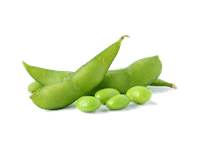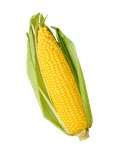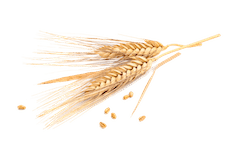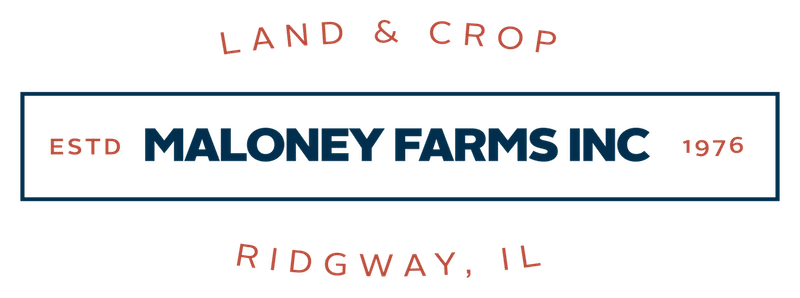
SOYBEANS
The soybeans we produce often find their way to the domestic crushing industry to be processed into high protein animal feed and vegetable oils. Occasionally, our soybeans are loaded on barge to make their way to the US gulf for export abroad.

CORN
We produce both yellow and white corn. We are fortunate to be located in an area with a strong market presence of Ethanol Plants, Exporting Terminals, as well as processors of corn for human consumption.

WHEAT
We grow Soft Red Winter Wheat, planted in the fall and harvested in the summer. This crop is good for soil health and over winter erosion control. We harvest the grain, which is often processed at local flour mills. We also harvest the straw and residue to use for animal bedding in our cattle feeding operation.
CROP FARMING
Soil conservation is an overriding theme in everything we do. Over the past forty years, we have installed over six miles of grass waterways, catch basins and other erosion control structures. While this has greatly diminished soil erosion on our farm, we like to take a long view when looking for new ways to balance the effects of intensive crop farming with conservation that can maintain the health of our soils through generations. We employ a lot of no-till and reduced tillage practices to conserve soil and moisture. The benefits don’t stop at soil conservation, as we find lower operating expenses for machinery, fuel, and labor. The past few years have had us adding field tile drainage where appropriate. This allows for more uniform ground conditions, earlier planting and harvest, as well as more uniform yields across the field. Irrigation and tile combine to create an environment where water management can be better controlled to meet the needs of the soil and growing crops.
In 1979 we began adding center pivot irrigation systems and quickly realized the returns. We have aggressively added irrigation systems to the point that we now have about half of the farm irrigated. The balance of the acres either don’t have water available or are small irregular tracts that are not economical to water. We have entered into long-term agreements with some of our landowners and paid to install irrigation systems ourselves. Irrigation systems have allowed us to grow some non-traditional crops, such as sweet corn, snap beans, and cucumbers; As well as open up many double cropping opportunities particularly suited to our relatively long growing season.
We are early adopters of technology. Variable Rate applications of seed, commercial fertilizers, and herbicide/pesticides not only serves to reduce the expenses associated with over applications of these costly inputs, but also helps reduce risk of runoff in what seems like an increasingly unpredictable growing environment. All acres are not the same, technology allows us to tailor the way we farm to the specific needs of management areas within the field.

